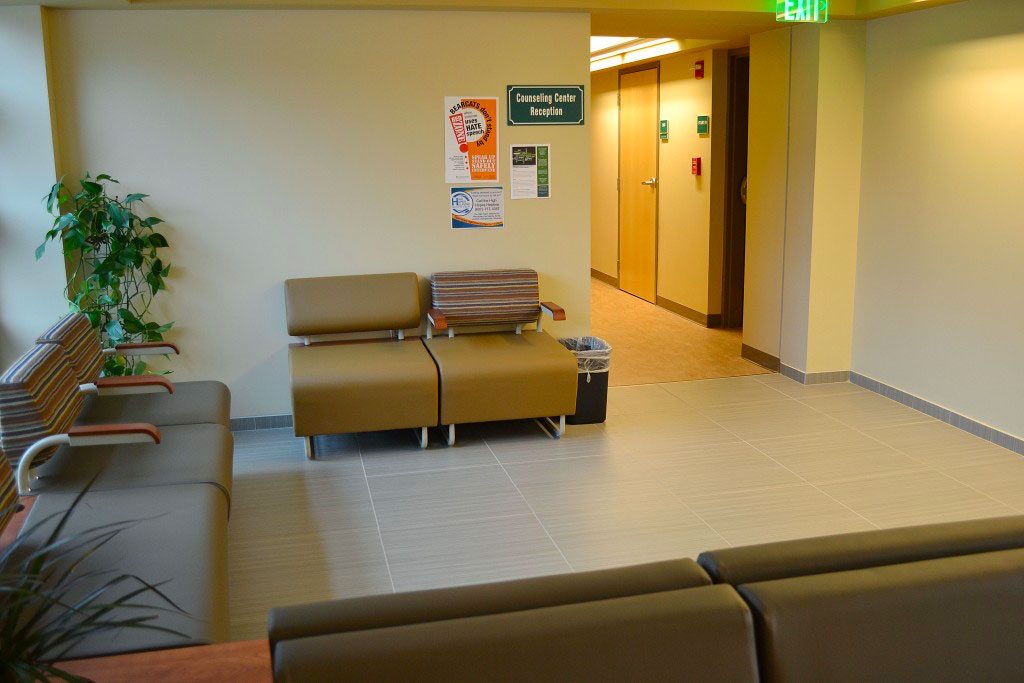
Binghamton University students who need counseling services outside the University Counseling Center’s (UCC) normal hours now have access to a 24/7 form of assistance.
Since Nov. 6, the UCC has offered access to trained counselors through ProtoCall Services, Inc., a provider of telephone-based behavioral health services that serves over 150 college campuses and 2 million college students. Students will be able to call a designated number from 5 p.m. to 8:30 a.m. Monday through Friday and at all hours on weekends. The UCC’s business hours are 9 a.m. to 5 p.m., Monday through Friday.
To use the free service, students can call the UCC at 607-777-2772, press 2 on the voicemail menu and connect with a counselor from ProtoCall who has been briefed on the University’s procedures and resources.
Emily Panigrosso, assistant director of the UCC, wrote in an email that she believes the services are necessary for students who find themselves in moments of panic or stress.
“The addition of this service will prevent students from needing to access emergency services when they need to talk to a mental health professional in the moment, but don’t actually need emergency level of care,” Panigrosso wrote.
Counselors who answer the calls will ask for names, but students can remain anonymous if they prefer. Danielle Lardi, an undeclared freshman, said she finds the anonymity appealing.
“It’s intimidating having to ask people for help face-to-face,” Lardi said. “I would definitely use the service knowing I could just call and start talking to someone.”
Panigrosso wrote that she sees the phone line as an opportunity for the UCC to serve more University students, many of whom would otherwise have to make an emergency consultation during the Center’s hours or wait weeks for a scheduled appointment. UCC staff will sometimes follow up with students who use the service.
In the spring of 2016, the UCC switched to the brief therapy model, in which students meet with UCC counselors to be assessed before being connected with UCC resources or off-campus providers. The model’s implementation was designed to decrease student wait time and help students resolve a specific issue.
The UCC works with other offices on campus, including Decker Student Health Services Center and the Services for Students with Disabilities office. According to Panigrosso, these relationships give options to students who counselors believe could use additional or alternative care.
“This integration means that staff are able to provide excellent coordination of care for students, such as referring students in emotional distress to both medical and counseling care,” Panigrosso wrote. “Faculty and staff can refer students to use the after-hours phone counseling, and can also use it themselves to consult after hours about urgent matters regarding students of concern.”
Andrew Garabito, a sophomore majoring in mechanical engineering, said he’d consider using the UCC as a resource if he had a positive experience with the phone line.
“My mom is always telling me to take advantage of the Counseling Center but I always put off going,” Garabito said. “If the services are good over the phone when I need them, I would definitely make it a priority to go into the UCC to make an appointment.”
While the phone line is meant for moments of distress, emergency resources including the Binghamton’s New York State University Police or the Crisis Center at United Health Services Binghamton General Hospital are also available in the event of life-threatening emergencies.


